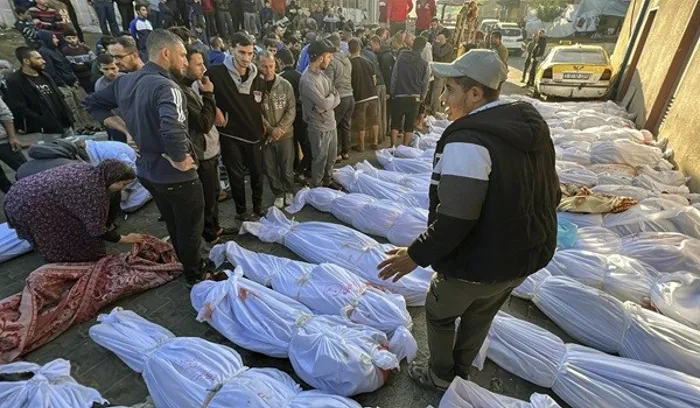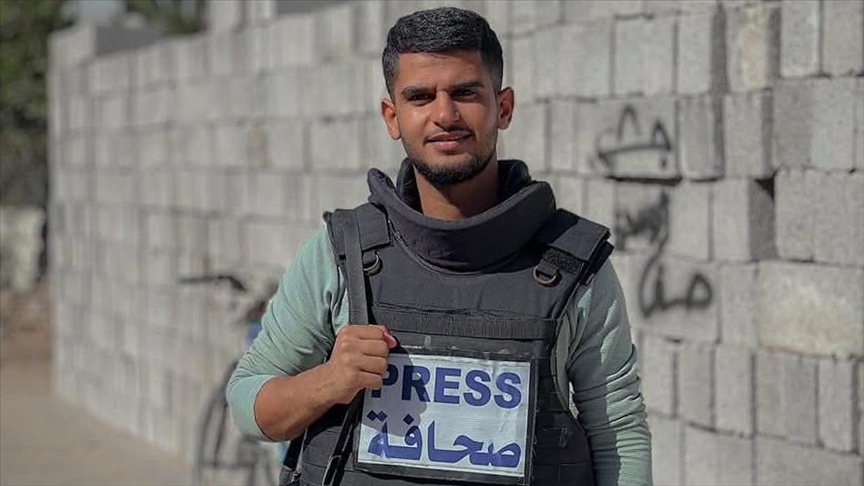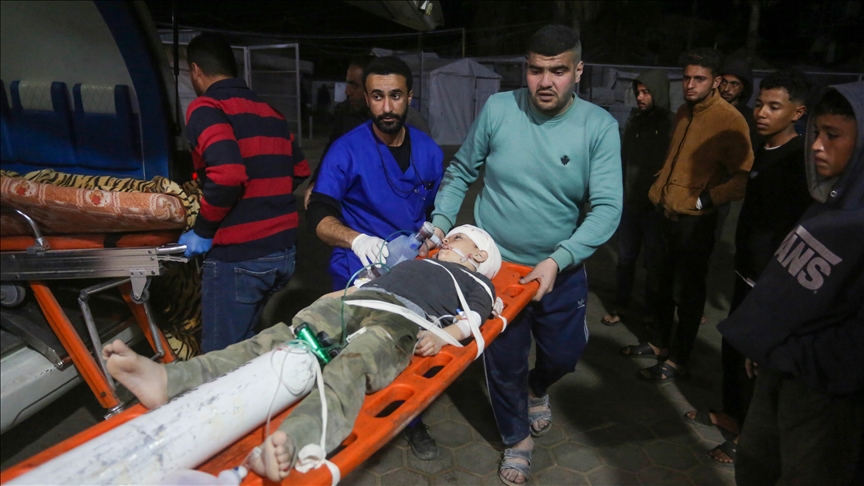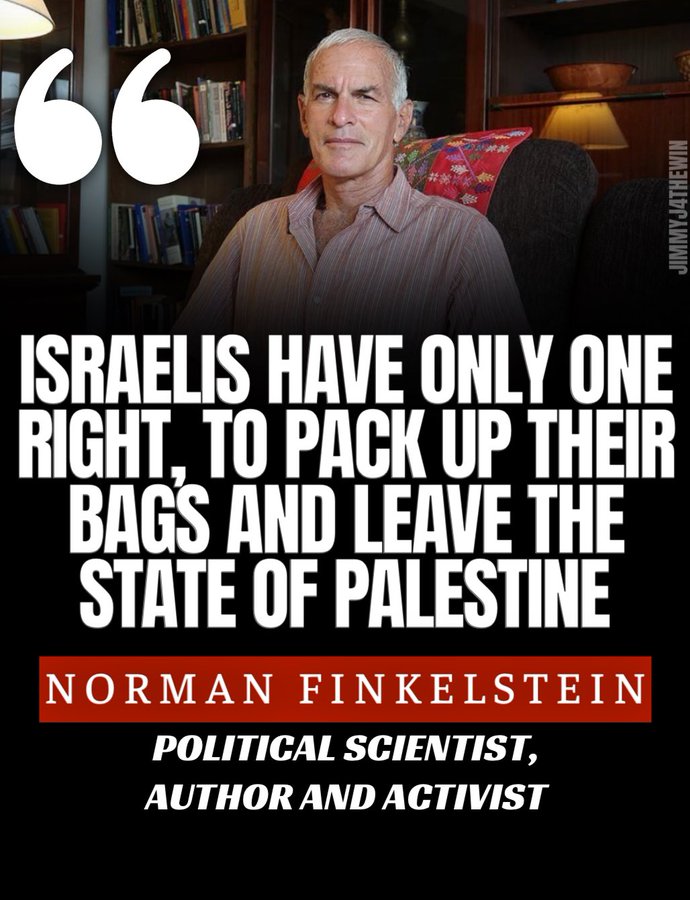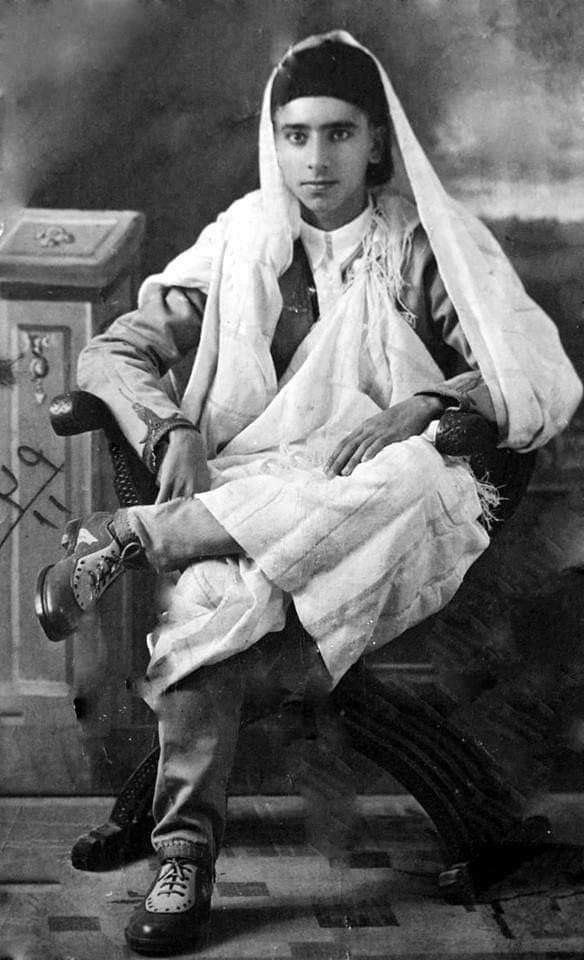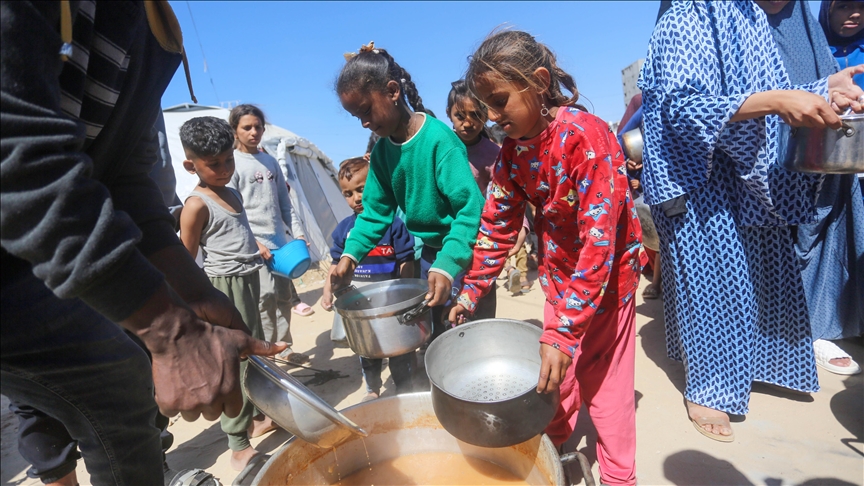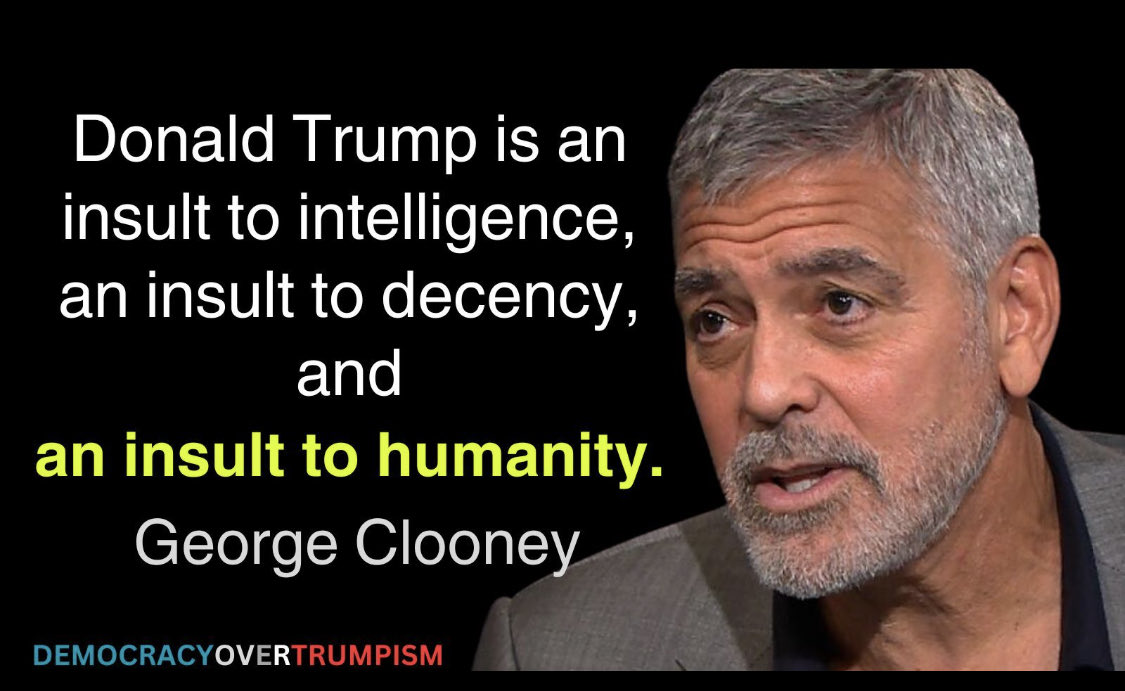The international community must put genuine pressure on Israel to promptly guarantee the unconditional entry of technical teams, forensic specialists, and criminal investigators into the Gaza Strip, along with the required tools. This will help Palestinians in the Strip recover the bodies of victims from beneath debris and in areas where Israeli forces invaded, identify the victims, and provide information about the whereabouts of those who have not been found.
These actions are essential, not only to safeguard families’ rights to know the fate of their loved ones and to bury those who have been killed with dignity and respect, but to ensure accountability for the perpetrators of the genocide that Israel has committed in the Gaza Strip for the past 15 months.
Decomposed
Through urgent field visits during the first few days of the ceasefire, Euro-Med Monitor field teams have documented vast numbers of Palestinian bodies killed by Israeli shelling over the past few months, many of which have almost completely decomposed.
The bodies of 79 people, including 21 unidentified individuals, were recovered in the Rafah neighborhoods by ambulance and civil defense crews following the withdrawal of Israeli army forces.
The Euro-Med Monitor field team was able to inspect areas of incursion in both Rafah and the northern Gaza Strip, and found the severely decomposed remains of multiple additional victims, of whose skulls and a few bones were all that was left.
In order to help local rescue teams recover victims from beneath the massive and intricate debris, it is imperative that specialised equipment and technical crews be brought in. It should be noted that the current rescue teams are using antiquated and inadequate tools, which makes it more difficult for them to carry out their mission effectively, and adds to the suffering of families who are waiting to find out what happened to their loved ones.
The situation could worsen, and the number of victims could rise, if this equipment is not provided right away.
Forensic specialists
Expert teams of criminal investigators and forensic medicine specialists are urgently needed to identify victims, particularly hard-to-identify decomposed bodies. According to preliminary estimates, over 11,000 people are missing, including many individuals who are presumed by their families to have been killed in areas of Israeli military incursion and/or who remain trapped under the rubble following bombings, as well as others who were forcibly disappeared in Israeli occupation prisons. This doubles the suffering of families and highlights the urgent need for international assistance to save remaining survivors and find out what happened to the missing.
Given the potential for heightened suffering if swift action is not taken, this crisis necessitates immediate international intervention. Many of the decomposing bodies found likely belong to individuals who were forcibly disappeared by the Israeli military months ago, underscoring the urgent need for legal proceedings pertaining to the investigation of the missing people’s fate, particularly those who vanished due to the extensive military operations or were detained by the Israeli occupation forces.
Israeli crimes
In addition to strengthening international accountability efforts against the Israeli crimes committed in the Gaza Strip, the presence of specialized forensic teams will help to ensure the preservation of crucial evidence needed to hold those responsible for these violations accountable. To prevent the loss of such evidence or deception in investigations, it is necessary to provide a way to document the condition of victims’ bodies in accordance with human rights standards.
The large number of victims and the fact that Israeli army forces remain heavily deployed in the eastern and northern outskirts of the Gaza Strip, as well as in the Netzarim axis area, south of Gaza City, make it difficult for rescue teams to do their jobs well. To thoroughly investigate the grave crimes Israel has committed against Palestinians in the Strip, it is crucial to make it easier for rescue teams to reach the aforementioned areas, recover victims, and determine the causes of death and potential means of killing.
Given that video footage has shown Israeli bulldozers burying Palestinians after they have been killed—as was the case in the Wadi Gaza Bridge area, south of Gaza City—pressure must be placed on Israel to disclose the locations or potential locations of any mass graves or burial sites of the Palestinian dead, so that the bodies can be exhumed and identified.
Mass graves
Any suspected mass grave sites must be thoroughly investigated, and the appropriate precautions must be taken to safeguard them and prevent tampering. International experts should oversee the exhumation of bodies and victim identification process in compliance with internationally recognised protocols, making sure that victim dignity and family rights are upheld throughout these operations. Additionally, these offences need to be recorded as proof in order to aid in the prosecution of the perpetrators.
It is crucial to speed up the recovery of the deceased people’s bodies in order to begin separating the victims who are confirmed dead or alive from those still missing and to enable families to bury their loved ones’ remains in a dignified manner and in accordance with their religious beliefs, as well as to determine the number of people who may have been forcibly disappeared in Israeli prisons or camps and pressure Israel to disclose their fate.
In the case of detainment, it is also important to ensure that families’ contact with their living loved ones is restored and that they are reunited as soon as possible, to relieve the significant psychological and social strain that people and their families endure due to these extended separations. Euro-Med Monitor emphasizes that family reunification is not just a humanitarian issue, but a fundamental legal right that must be upheld without delay.
To achieve justice and accountability, accurately recording each step of this process is crucial. This will guarantee that the required evidence will be available for use in future court cases or legal investigations.
The international community must also act quickly and decisively to guarantee justice and accountability for the crime of genocide in the Gaza Strip. Euro-Med Human Rights Monitor stresses that this includes establishing and sending specialised teams and investigation committees to the Strip to address these crimes.
Teams from the International Criminal Court, specifically, should be sent to the Gaza Strip immediately in order to ensure independent and thorough investigations; gather and preserve evidence; hear directly from victims and witnesses; establish a permanent office in the Strip to carry out their duties as effectively as possible, expedite their processes, and broaden the scope of their investigations to include the crime of genocide; plus issue arrest warrants for all those involved in these crimes, in order to ensure accountability and bring them to justice.
EuroMed Human Rights Monitor


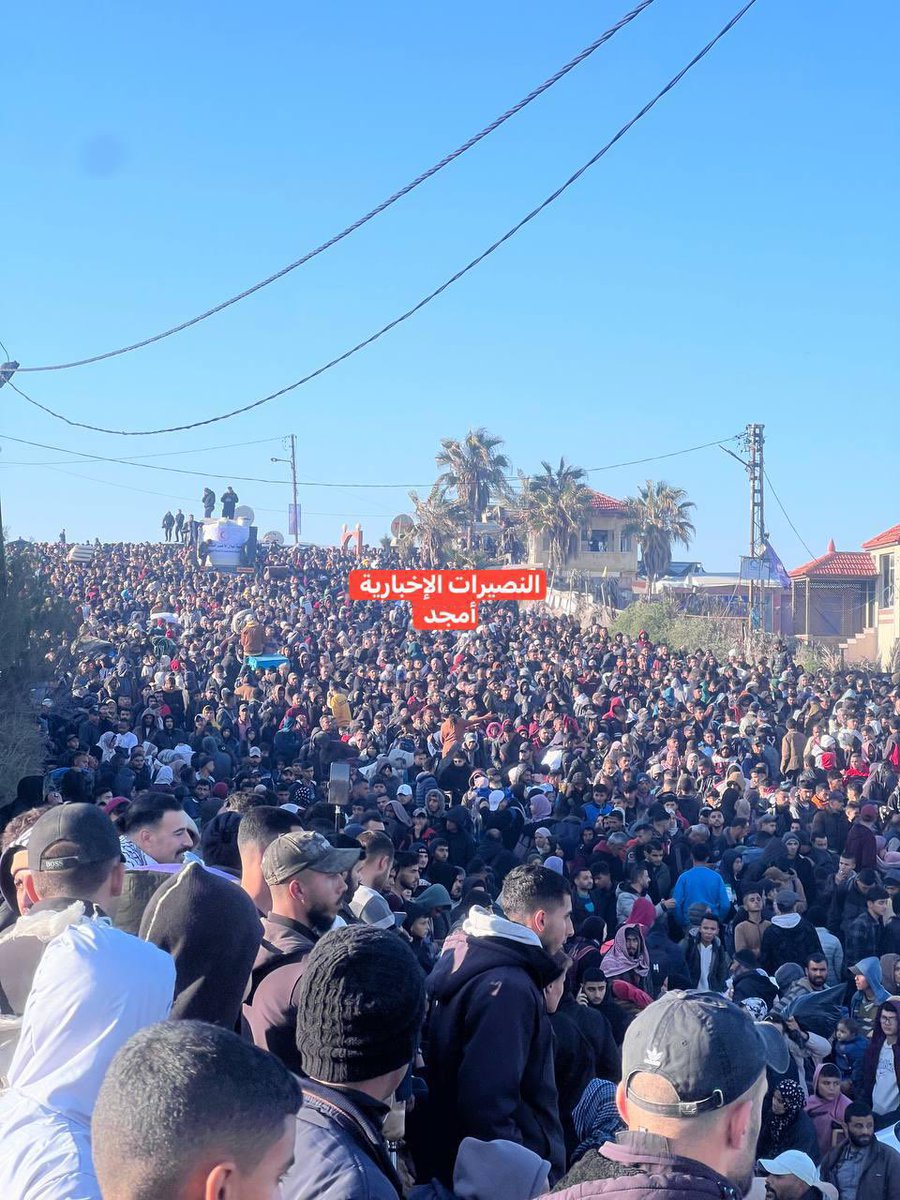


 (@mirza8211)
(@mirza8211) 